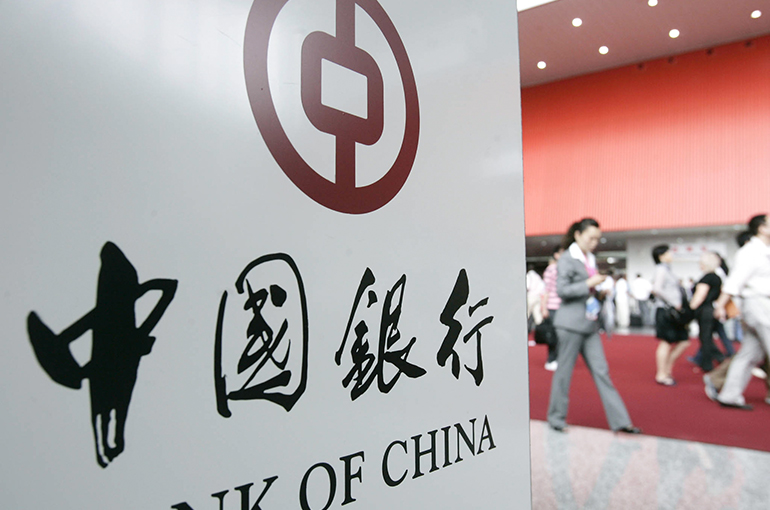 China’s Capital Infusion Into Big Banks Signals Bold Gov’t Action on Economy, BOC’s Boss Says
China’s Capital Infusion Into Big Banks Signals Bold Gov’t Action on Economy, BOC’s Boss Says(Yicai) April 1 -- The finance ministry’s decision to inject fresh capital into China’s major state-owned banks sends a strong message of government support for the economy, according to the chairman of Bank of China, one of the lenders involved.
“This move sends a powerful signal that the government is stepping up efforts to stabilize the economy and promote development,” Ge Haijiao said in an interview with Yicai yesterday.
The days before, BOC, Bank of Communications, China Construction Bank, and Postal Savings Bank of China unveiled plans for a combined recapitalization of CNY520 billion (USD71.7 billion) through private placements, with the finance ministry set to buy CNY500 billion of the shares.
Beijing-based BOC intends to raise CNY165 billion, the most among the four lenders.
Increasing the core Tier 1 capital of these major lenders is one of the government’s measures to boost growth, expand domestic demand, and defuse risks, he said, describing it as a strategic and forward-looking initiative to accelerate the building of a strong financial sector.
The planned capital boost can drive growth in social financing, creating a robust flow of financial “vitality” into major strategic areas, such as boosting consumption, expanding domestic demand, and developing new quality productive forces, Ge also pointed out.
“The capital adequacy ratios of large state-owned banks are directly related to their financial support capacity for the real economy and the stability of the financial system,” he said.
“Bank of China is both ready and able to seize the development opportunities arising from this capital increase, channeling the benefits toward areas critical for the high-quality development of our economy and society,” Ge noted.
Following the capital infusion, BOC will not only step up serving the real economy and help upgrade the industrial structure, but also unlock new business opportunities and profit growth points, ultimately creating a formidable competitive “moat,” he added.
The global economic situation is complex and volatile, with trade frictions and geopolitical conflicts increasing uncertainty for the financial sector, according to Ge. Having an adequate core Tier 1 capital is a must for banks to cope with the complex economic situation.
The ministry's capital injection can increase the capital adequacy ratio of the four banks by about 0.5 percentage point each, according to Dong Ximiao, chief researcher at China Merchants Union. Ming Ming, chief economist at Citic Securities, told Yicai that the move is a proactive measure in anticipation of potential future problems rather than a passive risk response.
The core Tier 1 capital adequacy ratios of the four banks are all higher than the minimum required. As of Dec. 31, BOC's was 12.2 percent, while those of BOCOM, CCB, and PSBC were 10.24 percent, 14.48 percent, and 9.56 percent, respectively.
Editors: Tang Shihua, Futura Costaglione